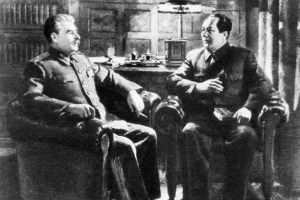
Under the scorching sun of Buenos Aires, more than half a million people mobilized this Wednesday (27) in front of the Palace of Courts (headquarters of the Argentine judiciary), to express their rejection of the mega Decree of Necessity and Urgency (DNU) , signed by Javier Milei, through which he intends, without previously going through Congress, to modify 366 laws in force.
The mobilization was called under the slogan “Down with the DNU” by the General Workers’ Central (CGT) – the largest trade union confederation in the country. The mobilization was also accompanied by the rest of the country’s trade unions, social organizations and left-wing parties. Upon arriving at the Palace of Courts, the union confederations presented a precautionary measure to the judiciary requesting the suspension of the DNU, which they consider unconstitutional.
“We are not a messianic state or a monarchy. Being legitimate means convincing the majorities; if this scheme is not respected, there is a risk that it will not be respected”, warned the CGT in a document that was read at the demonstration.
Entitled “Bases for the reconstruction of Argentina”, the controversial measure adopted by the far-right government intends to modify 366 laws (without going through congress). The objective of the “biggest state reform in the last 40 years”, as the government describes it, is to generate a complete deregulation of the economy and establish an unprecedented removal of workers’ rights.
The decree was signed on December 20th. Since then, several lawsuits have been filed to demand its nullity as it is considered unconstitutional. Changing laws is an attribution of the legislative branch (Congress) that can be attributed to the executive branch only in cases considered to be of “urgent need” (such as a pandemic or war) or in cases where the change is small. Thus, by signing this DNU – which legislates for almost the entire economic life of the country – Javier Milei arrogates all public power to himself.
Since the night of its signing, protests (cacerolazos) have been taking place every night in the country. Furthermore, different sectors – of different ideologies – have presented various appeals to the courts to prevent the DNU, such as those presented by the prestigious constitutional lawyer Andrés Gil Domínguez, who in radio statements said he voted for Milei, the Observatory of Law of the City of Buenos Aires, the Ombudsman’s Office, among others.
“Any government plan that requires the modification, repeal or creation of laws must, imperatively, go through a parliamentary debate”, says the document read by the CGT.
At the same time the document was read, the crowd sang, amid the drums and smoke from the food stalls, “no se vende/la patria no se vende” (no se vende/the homeland is not for sale).
“The DNU is flawed from the beginning and, therefore, is null and void, as expressed in our Constitution and in the peaceful jurisprudence of the Supreme Court of Justice of the Nation. Today we come to ask the Judiciary to fulfill its function of controlling the Executive Branch and declare the DNU unconstitutional. Faced with the irrational abuse of one of the State’s powers, we, workers, turn to the courts to reestablish balance in the functioning of the Republic”, warned the CGT document.
On Thursday (28), the CGT leadership will meet to evaluate the measures to be adopted by the organized labor movement in response to Milei’s measures. Sectors of the left are calling for a general strike.
This is the third mass demonstration since Milei took office on December 10. On December 20, left-wing organizations carried out the traditional mobilization on that date – reminiscent of the popular rebellion of 2001 – in which they demanded the revocation of the government’s first economic measures. On the same night, after the DNU announcement, there were mass cacerolazos (demonstrations), which have been repeated every night until today.
Mobilization against the DNU / Enfoque Red
An offensive by capital against workers’ rights
Hours before the mobilization, the Argentine Political Economy Center (CEPA) released a report entitled “The Mega DNU of the Milei government, deregulations, dismantling, foreign ownership and a strong setback in labor rights”, which analyzes the most notable effects of the presidential measure .
In the document, CEPA states that the DNU deepens “pre-existing inequalities in society, removing the basic containment fences that sought – even with deficiencies – to equalize disparate situations.”
“In this economy without a referee, the winners are those who manage to impose their interests above others, due to their economic power and the subjugation of smaller players. The players do not all have the same conditions: some arrive injured and without medical assistance, others they arrive at the game without food, and some do not have boots. The strength and training conditions are not the same”, states the document.
At the same time, he denounces that “this deepening is not innocent, but has beneficiaries in all sectors, which, with the change in the State, improve their profitability”.
Among the main measures imposed by the DNU are the removal of most protections against dismissals, allowing large companies to hire workers without having to register them in the formal system, allowing companies not to pay overtime, limiting the right to union association and the right to strike, among other measures.
This is the biggest offensive against workers’ rights since the last military dictatorship.
Editing: Rebeca Cavalcante

Source: www.brasildefato.com.br

